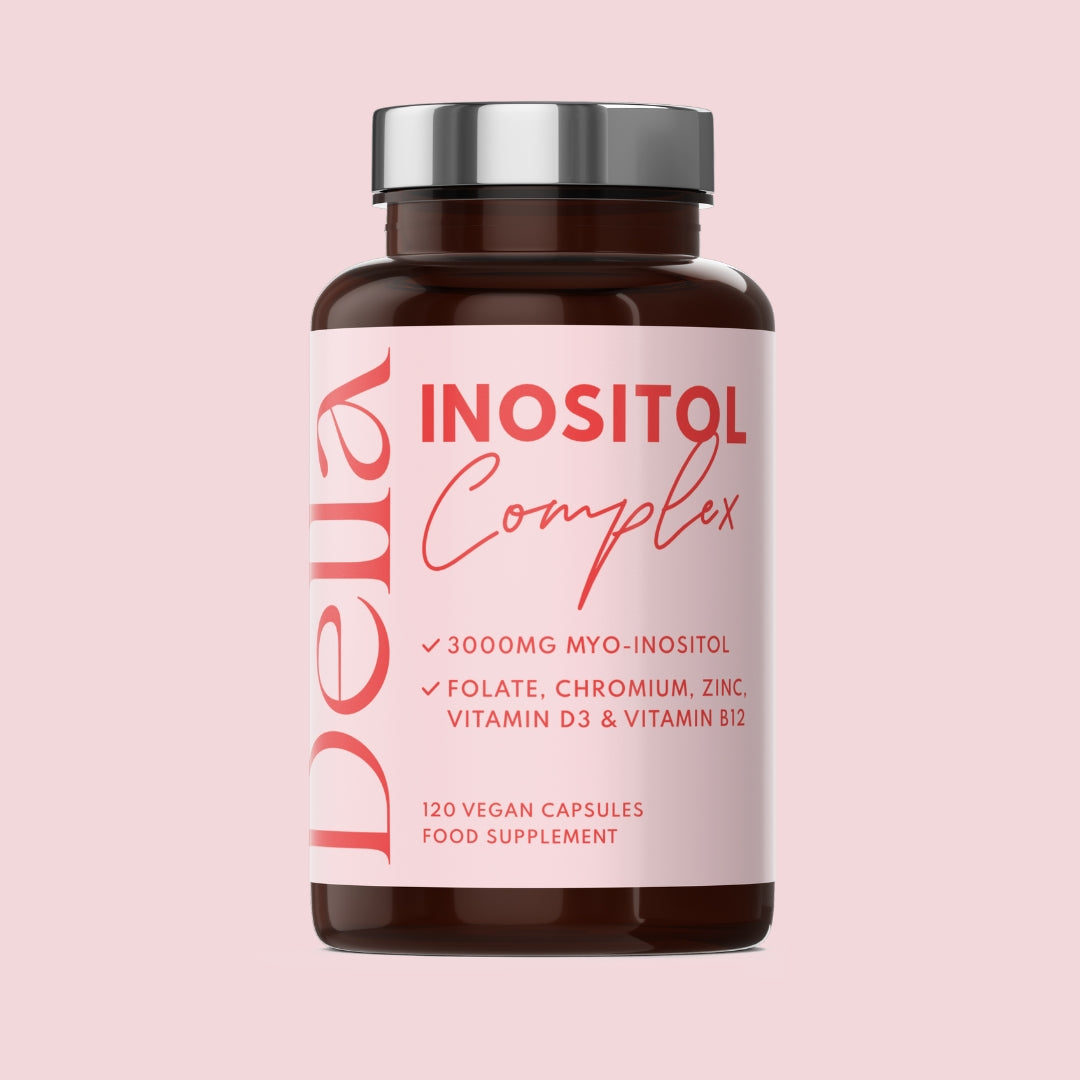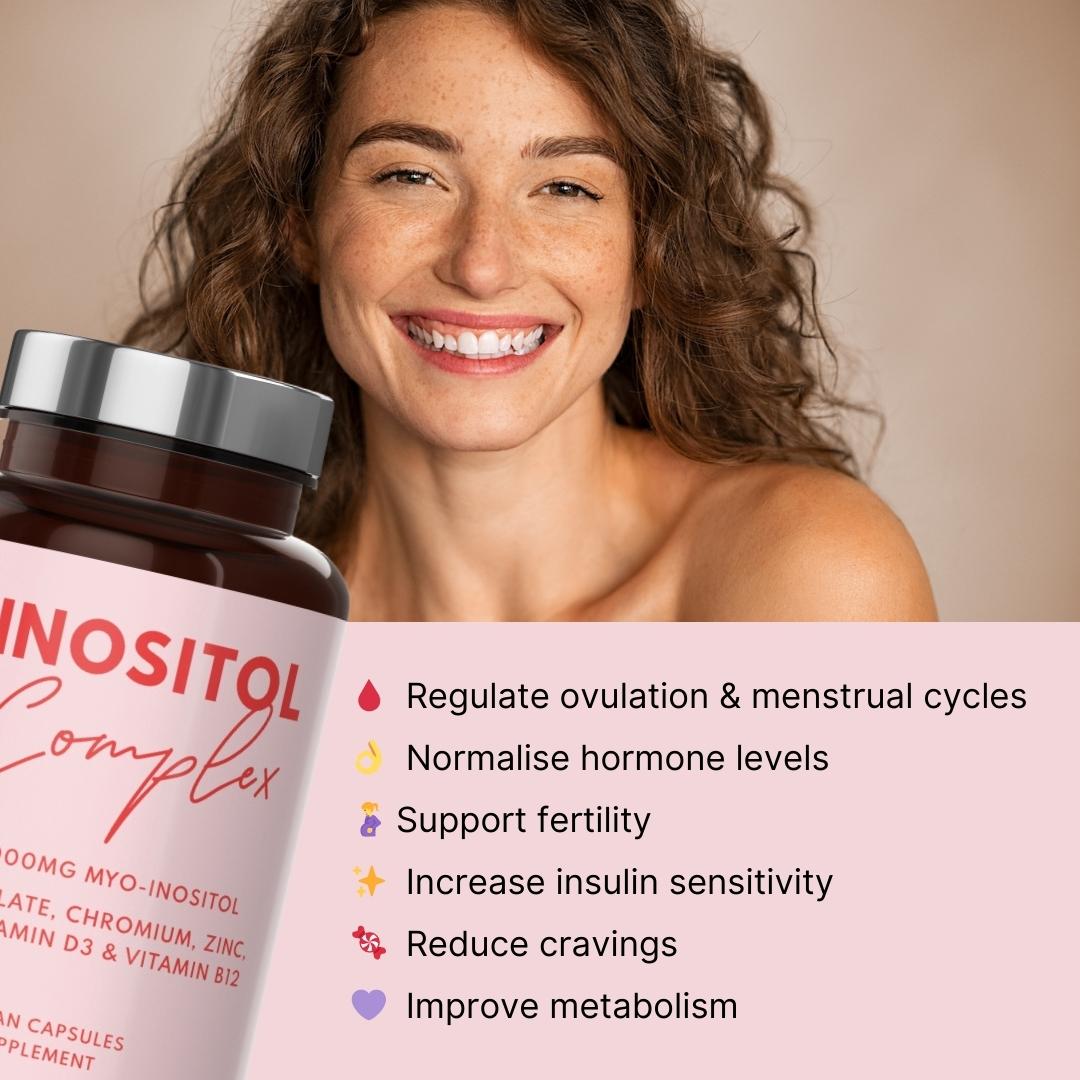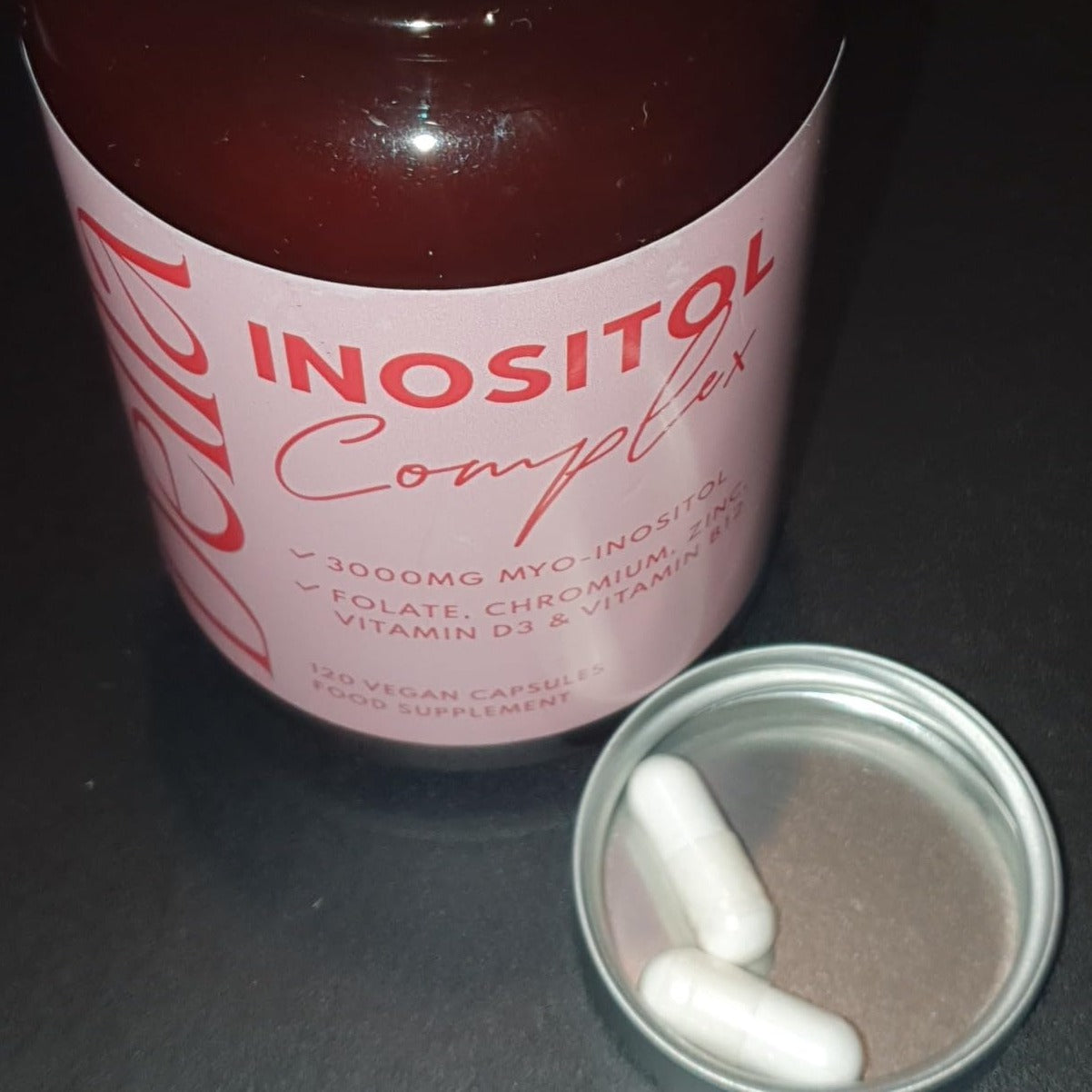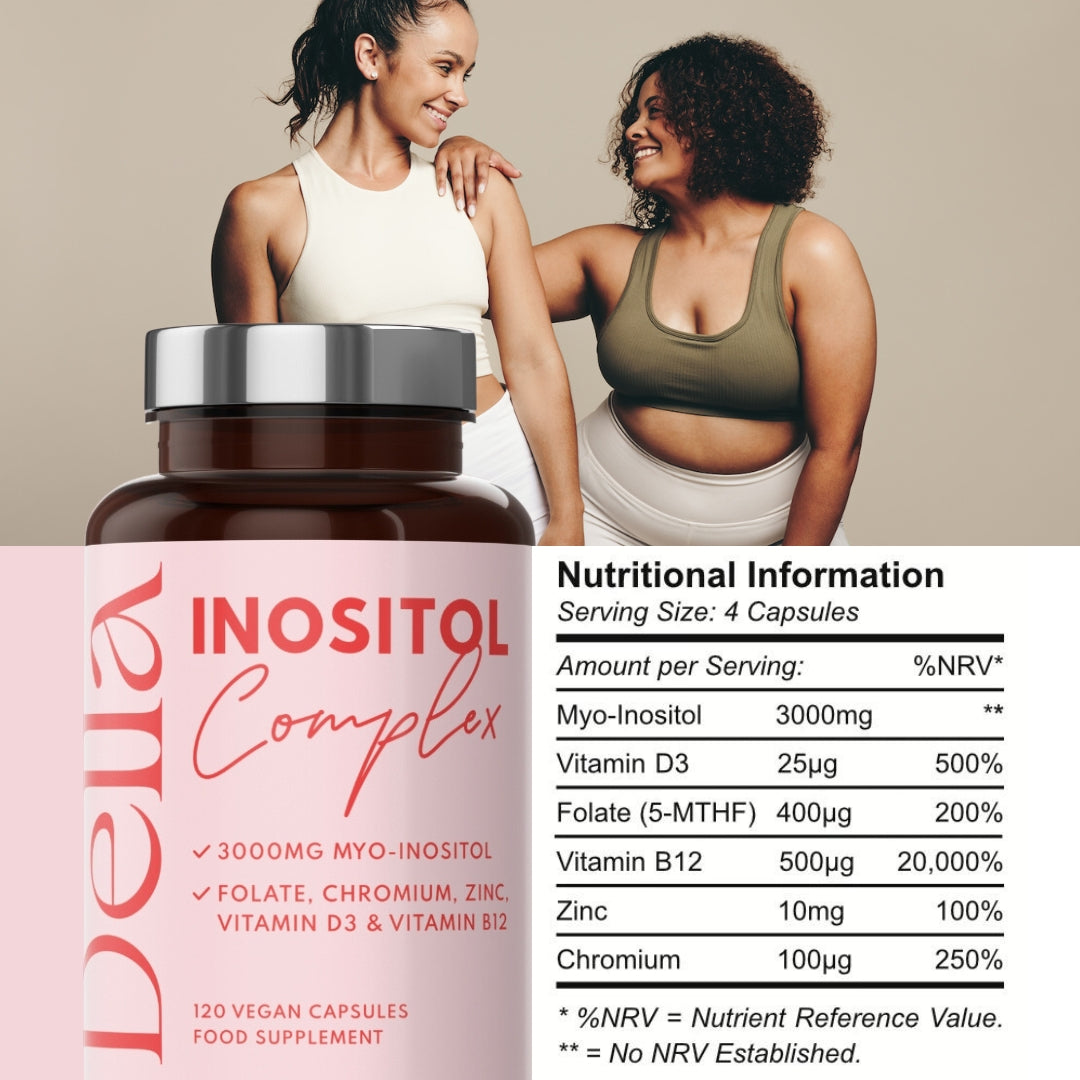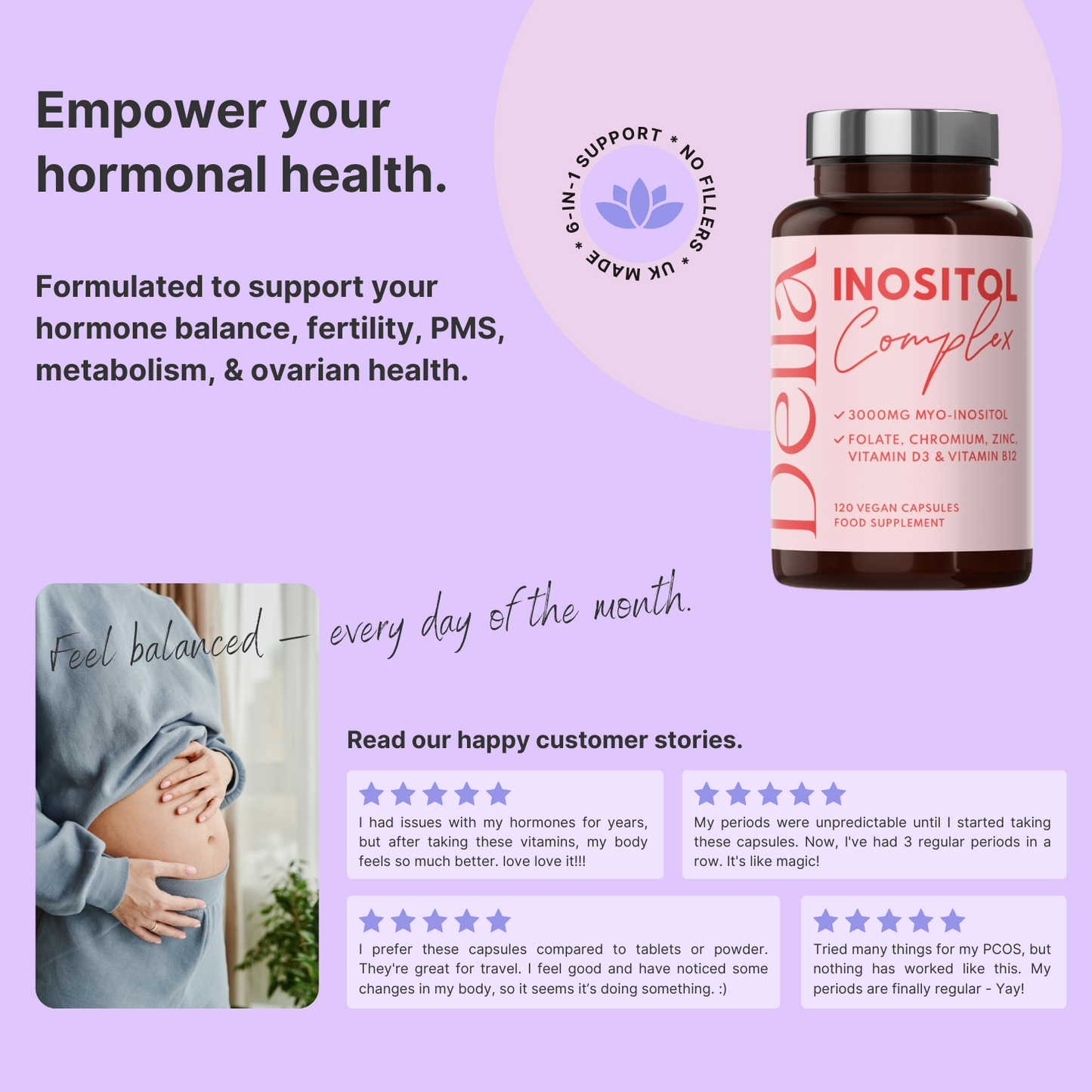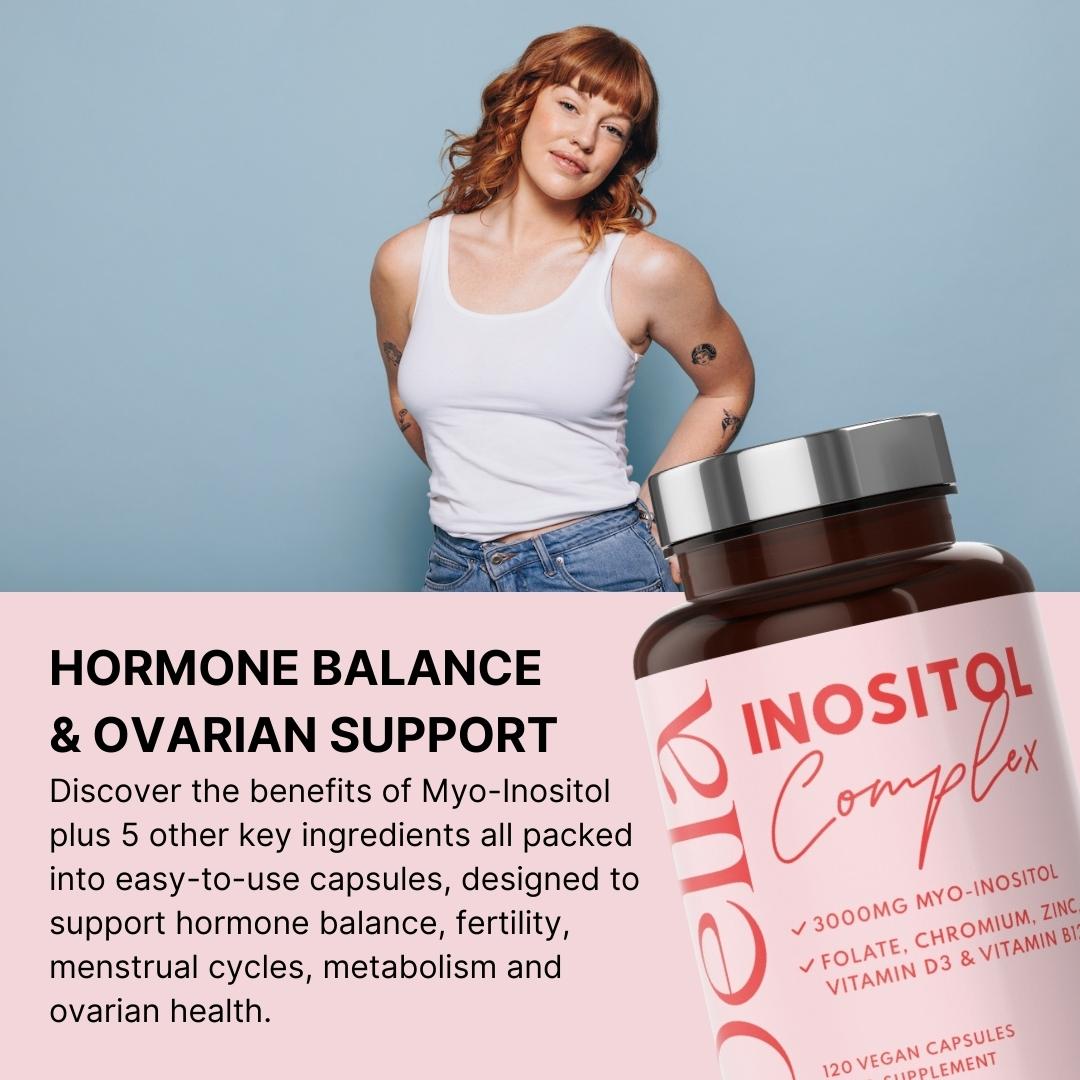Insulin resistance plays a pivotal role in both causing and managing PCOS.
In this article, we will take a closer look at how insulin resistance impacts the body of someone with PCOS, why addressing this issue is crucial and what you can do.
Insulin Resistance: A Core Feature of PCOS
Insulin resistance occurs when the body's cells become less responsive to the hormone insulin. This can in turn affect the body in several significant ways, leading to:
- Hormonal Imbalances: Insulin resistance stimulates the ovaries to produce excess androgens (male hormones). This hormonal imbalance can lead to a range of distressing symptoms, including acne, excessive hair growth (hirsutism), and even male-pattern baldness.
- Disrupted Menstrual Cycles: Elevated insulin levels disrupt the delicate hormonal signaling that regulates menstrual cycles. Consequently, women with PCOS often experience irregular or absent periods, which can affect fertility and overall health.
- Weight Gain and Obesity: Insulin resistance can lead to weight gain, particularly in the abdominal area. For individuals with PCOS, this weight gain can be particularly challenging to manage, further exacerbating insulin resistance in a vicious cycle.
- Increased Diabetes Risk: Insulin resistance is a significant risk factor for the development of type 2 diabetes. Individuals with PCOS have an elevated risk of diabetes if insulin sensitivity is not improved.

The Body's Response to Insulin Resistance in PCOS
Understanding how insulin resistance impacts the body in PCOS is crucial:
- High Blood Sugar Levels: Controlling blood sugar is essential in managing PCOS. When cells become resistant to insulin, blood sugar levels remain elevated, leading to an increased risk of diabetes.
- Inflammation: Insulin resistance is often associated with chronic low-grade inflammation in the body. This inflammation can exacerbate PCOS symptoms and increase the risk of other health issues.
- Cardiovascular Health: Insulin resistance is closely linked to cardiovascular problems, including high blood pressure and abnormal lipid profiles. These factors raise the risk of heart disease in individuals with PCOS.
- Fertility Challenges: Insulin resistance can hinder ovulation, making it difficult for women with PCOS to conceive. Addressing insulin resistance is a vital step in improving fertility.
Addressing Insulin Resistance in PCOS
As you can imagine, improving insulin sensitivity is a critical component of managing PCOS. Fortunately, there are a lot of things we can do to improve our insulin sensitivity:
- Lifestyle Changes: Adopting a healthy lifestyle, including a balanced diet, regular physical activity, and sufficient sleep, can significantly improve insulin sensitivity.
- Supplements: Many supplements, like Chromium and Myo-Inositol, have been proven to improve insulin sensitivity.
- Medications: In some cases, healthcare providers may prescribe medications to enhance insulin sensitivity.
- Low-Glycemic Diet: Consuming a low-glycemic-index (GI) diet can help stabilize blood sugar levels and improve insulin sensitivity.
- Weight Management: Achieving and maintaining a healthy weight can have a profound impact on insulin sensitivity. Even modest weight loss can make a difference.
- Stress Reduction: Managing stress through techniques such as meditation and yoga can help mitigate the negative effects of insulin resistance.
Insulin resistance is a key factor in PCOS, causing hormone imbalances, infertility, weight gain, and a higher risk of diabetes. Understanding its importance is the first step in managing PCOS. By making conscious lifestyle changes, you enhance insulin sensitivity, reduce symptoms, and improve your well-being.
FAQs about the Link Between PCOS and Insulin Resistance
What is insulin resistance, and how does it relate to PCOS?
Insulin resistance is a condition where the body's cells become less responsive to insulin. It plays a crucial role in PCOS as it leads to hormonal imbalances and other related issues.
What are the main symptoms of PCOS related to insulin resistance?
Symptoms include acne, excessive hair growth, male-pattern baldness, irregular or absent periods, weight gain (especially in the abdominal area), and an increased risk of diabetes.
How does insulin resistance affect hormonal balance in individuals with PCOS?
Insulin resistance stimulates the ovaries to produce excess androgens (male hormones), leading to hormonal imbalances and associated symptoms.
What impact does insulin resistance have on menstrual cycles for women with PCOS?
Elevated insulin levels disrupt hormonal signalling, resulting in irregular or absent periods, which can affect fertility and overall health.
Why is managing insulin resistance crucial for individuals with PCOS?
Managing insulin resistance is essential because it helps control blood sugar levels, reduces inflammation, improves cardiovascular health, and enhances fertility in PCOS.
What are the health risks associated with insulin resistance in PCOS?
Health risks include an increased risk of type 2 diabetes, chronic low-grade inflammation, cardiovascular problems, and difficulty conceiving due to hindered ovulation.
What lifestyle changes can help improve insulin sensitivity in PCOS?
Adopting a balanced diet, engaging in regular physical activity, getting enough sleep, managing stress, and achieving a healthy weight are key lifestyle changes that can improve insulin sensitivity.
Are there supplements that can help with insulin sensitivity in PCOS?
Yes, supplements like Chromium and Myo-Inositol have been shown to improve insulin sensitivity in individuals with PCOS.
When might healthcare providers prescribe medications to enhance insulin sensitivity in PCOS?
Medications may be considered when lifestyle changes and supplements are not sufficient in improving insulin sensitivity or when there are specific medical indications.
Can a low-glycemic diet help manage insulin resistance in PCOS?
Yes, a low-glycemic-index (GI) diet can stabilise blood sugar levels and improve insulin sensitivity in individuals with PCOS.



